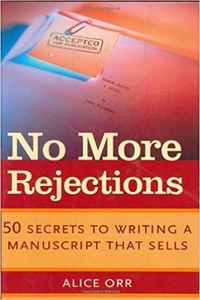It Takes Two to Tangle,
in real life and in storytelling. But, whether a fictional connection is romantic or not, the other person
in your main character's relationship exists, mainly, for the purpose of moving
and intensifying your hero's story.
The second character
gives your hero someone to talk to, moves her thoughts into dialogue. Which cuts down on internal monologue that
slows the pace of the story. Dialogue appears more active on the page than paragraphs
of uninterrupted narrative, and more active to the reader's consciousness also.
This dialogue must, of course be interesting and compelling.
How do you make dialogue
interesting? First, by creating
a complex, fascinating story mate to match your complex, fascinating hero. A mate
whose opinions and attitudes differ from those of your main character. They may
be mates in general, but they debate, irritate one another, and even openly conflict
on occasion.
These conflicts are
usually variations in attitude rather than violent disagreements. They force your hero to articulate her feelings
and beliefs. This allows your reader to know her better and identify more closely
with her, which is critical to hooking the reader into your story.
The second character
need not be portrayed as sympathetically as the hero. This mate character may be in the process of
evolving, with something major yet to learn in life. He or she may or may not accomplish
that goal in this story, unlike your hero who must learn and grow.
You should also contrast
these two characters in more external ways. Family and cultural background, life experience, economic and social status,
physical appearance. These differences provide potential for fireworks in the relationship,
which may be sexual or not. Either way, they enflame reader interest, and that heat
serves your storytelling purpose.
In real life, we
prefer people to get along, but, in fiction, too much harmony is boring. Conflict in a story relationship makes that
story more interesting. However, you, as author, must understand what storytelling
conflict is. Banter back and forth between characters, no matter how clever, is
not strong enough conflict to create compelling fiction.
There must be a crucial
problem between the characters for real conflict to occur. The greater the problem, the more intense the
trouble between them becomes, and intense conflict is the heart of strong storytelling.
These two characters may basically like, or even love, each other, but if they get
along too well for chapter after chapter, they lose the reader's interest.
You must create characters
with the potential for legitimate contention between them. Most importantly, create an active hero with
the strength to stand up for herself and what she believes, and to defy opposition.
She is a person who refuses to remain passive while bad things happen to her, or
to those she cares about. This portrayal makes her defiance believable.
Next, create a mate
character strong enough to be a worthy adversary. Now, you have a relationship that is a juxtaposition
of equals, with potential for true tension between them. Without this tension, conflict
that grips your reader will fail to ignite. With this tension, and the sparks it
produces, the relationship, and your storytelling, set fire to the page.
For more insights into
writing and publishing, visit my blog at www.aliceorrbooks.com.
Alice Orr is author of 16 novels, 3 novellas, a memoir
and No More Rejections: 50 Secrets to Writing a Manuscript that Sells. A former
book editor and literary agent, Alice now writes full-time. Her latest novel is
A Time of Fear and Loving – Riverton Road Romantic Suspense Series Book 5. Find
all of Alice Orr's books at amazon.com and other online retailers. Alice has two
grown children and two perfect grandchildren and lives with her beloved husband
Jonathan in New York City.
Author Website www.aliceorrbooks.com
Author Blog www.aliceorrbooks.com
Amazon Author Page https://www.amazon.com/Alice-Orr/e/B000APC22E


Excellent advice, Alice. As usual! Appreciate your insight!
ReplyDelete